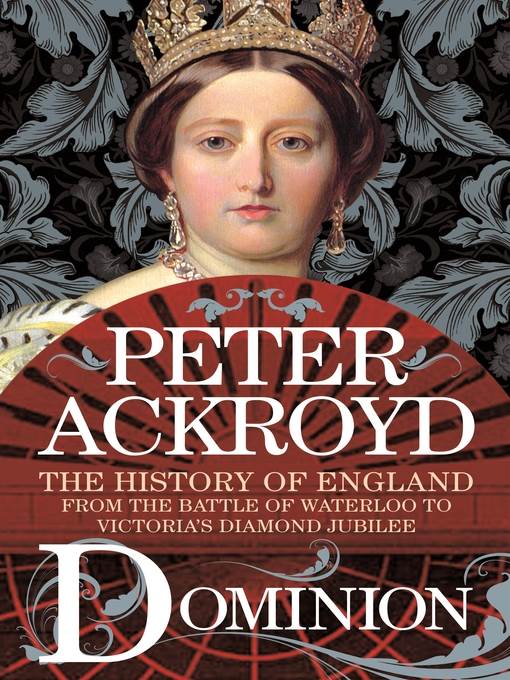
Dominion: The History of England from the Battle of Waterloo to Victoria's Diamond Jubilee
The History of England Series, Book 5
کتاب های مرتبط
- اطلاعات
- نقد و بررسی
- دیدگاه کاربران
نقد و بررسی

August 15, 2018
The fifth volume in the acclaimed author's history of England.Ackroyd's (Revolution: The History of England from the Battle of the Boyne to the Battle of Waterloo, 2017, etc.) observation that nobody can live in an age outside their own because the smells, sights, and reality would be unendurable will awaken many readers to our similarities and differences. The 19th century saw something new springing up nearly every day. From the days of Wellington and Peel, Corn Laws, Catholic crisis, and bad harvests through Gladstone, Disraeli, and the Industrial Revolution, the only thing that was static was the plight of the poor, who never rose like the strengthening middling class. Likewise, the author cleverly points to the Irish problem as an English problem. They owned the land, ruled, administered, and never went away. The century saw few wars from Waterloo until the 1848 revolutions, which were described by Lewis Namier as a "turning point at which history failed to turn." From that time onward, each great power was at war at one time or another. England had fewer wars but was constantly warding off threats to the empire. Happily avoiding quotidian life, military history, or too much economics, Ackroyd describes the character of the age perfectly. England was banker to the world; God and duty were two of the most important elements of the period; prose was the language of power; and politics were not a question of policy but of personality. "Cant was the moral cloud which covered the nineteenth century," writes the author. "It was part of the age of respectability....Cant encompassed the politician who smiled while remaining a villain; cant was the language of the moral reformer who closes public houses on Sunday....Never has a period been so concerned to give the right impression."Though this installment doesn't quite match the first four in capturing our imaginations, Ackroyd, as always, is well worth the read.
COPYRIGHT(2018) Kirkus Reviews, ALL RIGHTS RESERVED.

September 10, 2018
This fast-paced fifth volume of a popular history of England by Ackroyd—a novelist, broadcaster, biographer, and poet—covers 1815–1901, a time dominated by the long reign of Queen Victoria (1837–1901), characterized by the growth of the British Empire, and marked by such socioeconomically transformative inventions as the steam engine, railroad, and telegraph. The industrial revolution brought to England both economic dominance and brutal factory life—children as young as nine were allowed to work 12 hours a day in cotton factories, for example. The period also saw three reform acts expanding the franchise for British men to about 60% of the male population. Ackroyd devotes much of his best chapter to the one major English war in Europe during this period, that in Crimea against Russia in the 1850s. He sometimes captures the zeitgeist by quoting literary works, as when he notes that Oscar Wilde’s 1891 essay “The Soul of Man Under Socialism” railed against what Wilde called the “stupidity, and hypocrisy, and Philistinism” of fin de siècle English life. However, with the exception of a passage on the pioneering geologist and paleontologist Mary Anning, Ackroyd largely ignores the lives and achievements of non-royal English women and how the Irish potato famine of the 1840s affected English life. These omissions aside, this is an informative and lively look at early modern England.

May 15, 2018
Having won Whitbread and Somerset Maugham honors for fiction and James Tait Black honors for biography, Ackroyd launched an ambitious multivolume history of England in 2011 that has now reached its fifth installment.
Copyright 2018 Library Journal, LLC Used with permission.

























دیدگاه کاربران